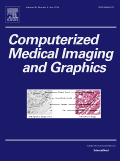Special Issue
Special Issue on "Sparsity Techniques in Medical Imaging" with The International Journal of Computerized Medical Imaging and Graphics

Scope
Sparsity has been an important modeling tool in compressed sensing, machine learning, image processing, neuroscience and statistics. In the medical imaging field, sparsity methods have been successfully used in image reconstruction, image enhancement, image segmentation, anomaly detection, disease classification, and image database retrieval. The inherent property of sparsity in the medical images and the image database introduces essential prior knowledge to facilitate the informatics acquisition, reconstruction and analysis. For example, in MR image reconstruction, sparsity in transformed space such as wavelet has been successfully used to speed up scanning time and improve reconstruction quality. In medial image segmentation, sparse shape prior can preserve the local details that are not significant in the training data and correct the misleading appearance cues. In low-dose dynamic CT, sparsity in the selection of high-dose patches recovers signal from noisy data and improve medical imaging safety by reducing the necessary radiation dose. In neuroscience, structured sparsity has been shown to be useful for predict the relevant features of brain diseases, such as Alzheimer's. We have also witnessed significant progress in flexible models to incorporate complex feature structure such as structured sparsity and dynamic group sparsity, which substantially enhances the model expressiveness and expands the domain of solvable problems. Sparsity in large-scale data, which deals with millions or billions of possible features or data points, have also been developed to efficiently select the key elements. Developing more powerful sparsity models for a large range of medical imaging and medical image analysis problems as well as efficient optimization and learning algorithm will keep being a main research topic in this field.
AimsThe goal of this special issue is to publish original, high quality papers on innovation research and development in the analysis of medical image data using sparsity models and methods. This special issue will help advance the scientific research within the field of sparsity methods for medical imaging. It will foster dialogue and debate in this vibrant field covering Compressed Sensing (CS), Sparse Learning (SL), Sparse Representation (SR) and their applications to medical imaging. It will consist of previously unpublished, contributed and invited papers. For the invited papers from STMI 2014, they must be sufficiently different from their respective conference papers with at least 50% new materials. Note, all submitted papers will go through peer-reviewed process.
Important DatesSubmission due: December 15, 2014
Results of first round: February 15, 2014
Revised paper due: April 15, 2015
Final Decisions: May 25, 2015
Camera ready: July 25, 2015
Issue Publication (Tentative): August, 2015
Topics
For this special issue, authors are invited to submit original research papers and high-quality overview and survey articles on topics including, but not limited to:
Methodology:
- Efficient Sparse Learning
- Dictionary Learning
- Shape Prior Modeling
- Convex Optimization on Sparsity Priors
- Group Sparsity
- Structured Sparsity
- Large-scale Sparse Learning
- Multi-Source Sparse Learning
- Statistical Analysis
- Model Selection, etc.
- Image / Signal Reconstruction
- Image Segmentation
- Image Enhancement
- Image Registration
- Compressed Sensing Magnetic Resonance Imaging
- Anomaly Detection and Correction
- Tsuhan Chen, Cornell University, tsuhan@ece.cornell.edu
- Ruogu Fang, Florida International University, rf294@cornell.edu
- Dimitris Metaxas, Rutgers University, dnm@cs.rutgers.edu
- Pina Sanelli, Weill Cornell Medical College, pcs9001@med.cornell.edu
- Shaoting Zhang, University of North Carolina at Charlotte, szhang16@uncc.edu
